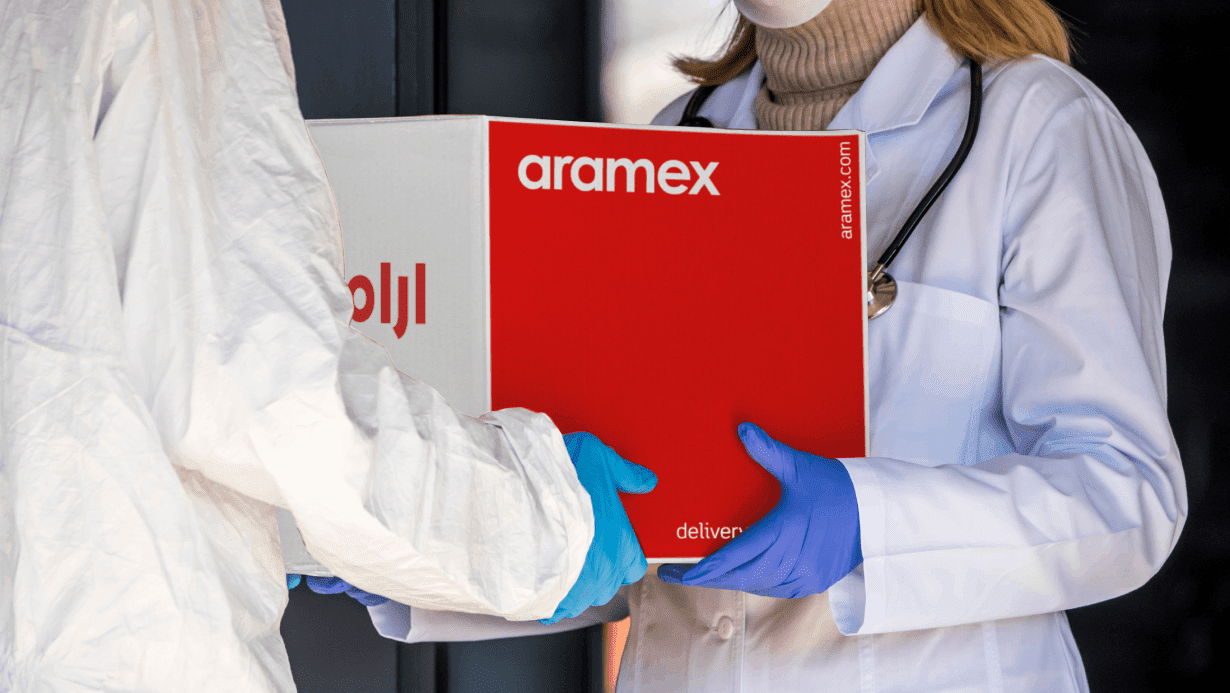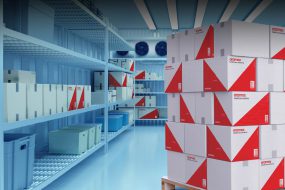

In the intricate web of modern healthcare, logistics play an indispensable role. The efficiency and effectiveness ofhealthcare logisticsservices can significantly influence patient outcomes by ensuring that the right products are delivered at the right time and place. This article delves into how healthcare logistics services, with a particular focus on cold chain logistics andfreight forwarding, are pivotal in enhancing patient care.
The critical role of healthcare logistics
Healthcare logistics encompasses planning, executing, and managing the flow of goods, information, and resources in the healthcare sector. It involves coordinating complex processes to ensure the timely and efficient delivery of medical supplies, pharmaceuticals, and equipment. In an era of rapid technological advancement and increasing patient expectations, the role of logistics in healthcare is more critical than ever.
Ensuring the integrity of temperature-sensitive products
Cold chain logistics is a specialised segment of healthcare logistics that deals with transporting and storing temperature-sensitive products, such as vaccines, biologics, and certain medications. The integrity of these products is paramount, as any deviation from the required temperature range can compromise their efficacy and safety. Advanced temperature monitoring systems, real-time data analytics, and sophisticated packaging solutions are employed to maintain the integrity of these products throughout the supply chain.
Related reading: How the Pandemic Disrupted the Pharma Supply Chain
Streamlining freight forwarding for healthcare
Freight forwarding is another crucial aspect of healthcare logistics. It involves organising and coordinating shipments from manufacturers to healthcare facilities. Efficientfreight forwarding ensures that medical supplies and equipment reach their destinations promptly, minimising delays and disruptions. By leveraging a network of carriers, freight forwarders optimise routes, consolidate shipments, and manage customs clearance, thereby enhancing the overall efficiency of the supply chain.
Enhancing patient care through logistics
The ultimate goal of healthcare logistics is to improve patient care. By ensuring the timely delivery of essential medical products and equipment, healthcare logistics services contribute to better patient outcomes in several ways.
Reducing medication errors and delays
Timely and accurate medication delivery is crucial in preventing medication errors and treatment delays. Healthcare logistics services employ sophisticated inventory management systems to track and manage pharmaceutical supplies, ensuring that healthcare facilities have the necessary medications in stock and ready for patient use.
Enabling access to advanced therapies
The advent of personalised medicine and advanced therapies, such as cell and gene therapies, has increased the demand for specialised logistics solutions. These therapies often require precise temperature control and rapid transportation to maintain their effectiveness. Healthcare logistics services equipped with cold chain capabilities enable healthcare providers to offer these advanced therapies to patients promptly, expanding access to cutting-edge treatments.
Supporting emergency and disaster response
In emergency and disaster situations, the ability to quickly mobilise and deliver medical supplies and equipment is critical. Healthcare logistics services are vital in supporting emergency response efforts by coordinating the rapid deployment of resources to affected areas. This capability is essential in mitigating the impact of disasters on patient care and ensuring that healthcare facilities can continue to operate effectively in challenging circumstances.
Related reading: 5 Healthcare Trends That Will Revolutionise the Medical Sector
The intersection of technology and healthcare logistics
Integrating technology in healthcare logistics is transforming how medical supplies are managed and delivered. Advanced technologies such as blockchain, IoT (Internet of Things), and AI (Artificial Intelligence) are being harnessed to enhance healthcare supply chains’ transparency, efficiency, and security.
Blockchain for enhanced transparency and security
Blockchain technology offers a secure and transparent way to track the movement of medical products through the supply chain. By providing an immutable record of transactions, blockchain enhances traceability and accountability, reducing the risk of counterfeit products entering the supply chain. This increased transparency is crucial in maintaining the integrity of healthcare logistics and ensuring patient safety.
IoT for real-time monitoring and control
IoT devices are increasingly being used in healthcare logistics to monitor the condition of medical products in real-time. Sensors embedded in packaging and transportation vehicles provide continuous data on temperature, humidity, and other environmental conditions. This real-time monitoring enables proactive interventions to prevent deviations from acceptable conditions, ensuring the integrity of temperature-sensitive products.
AI for predictive analytics and optimisation
Artificial Intelligence is revolutionising healthcare logistics by providing predictive analytics and optimisation capabilities. AI algorithms analyse vast amounts of data to forecast demand, optimise inventory levels, and improve route planning. These capabilities enable healthcare logistics providers to anticipate and respond to changes in demand, enhancing the efficiency and responsiveness of the supply chain.
Adapting to future challenges and opportunities
The healthcare logistics landscape is continuously evolving, driven by technological advancements and changes in the healthcare delivery model. To remain competitive and improve patient care, healthcare logistics providers must adapt to these changes and embrace innovative solutions.
Embracing multimodal transportation
Multimodal transportation,which combines different modes of transport, offers a flexible and efficient solution for healthcare logistics. By leveraging a combination of air, sea, and ground transportation, logistics providers can optimise routes and reduce transit times, ensuring the timely delivery of medical supplies across diverse geographies.
Innovating with sustainable solutions
Sustainability is becoming an increasingly important consideration in healthcare logistics. Providers are exploring eco-friendly packaging materials, optimising transportation routes to reduce emissions, and adopting circular economy principles to minimise waste. These sustainable practices benefit the environment and enhance the reputation and competitiveness of healthcare logistics providers.
Conclusion
Healthcare logistics services are a critical enabler of patient care. By ensuring the efficient and timely delivery of medical supplies, healthcare logistics providers contribute to better patient outcomes and support the delivery of advanced therapies. As the healthcare landscape continues to evolve, integrating technology and adopting innovative solutions will be essential in meeting future challenges and opportunities. By embracing these advancements, healthcare logistics providers can continue to enhance patient care and support the growing demands of the healthcare sector.
Contact us todayto enhance your healthcare logistics capabilities.




